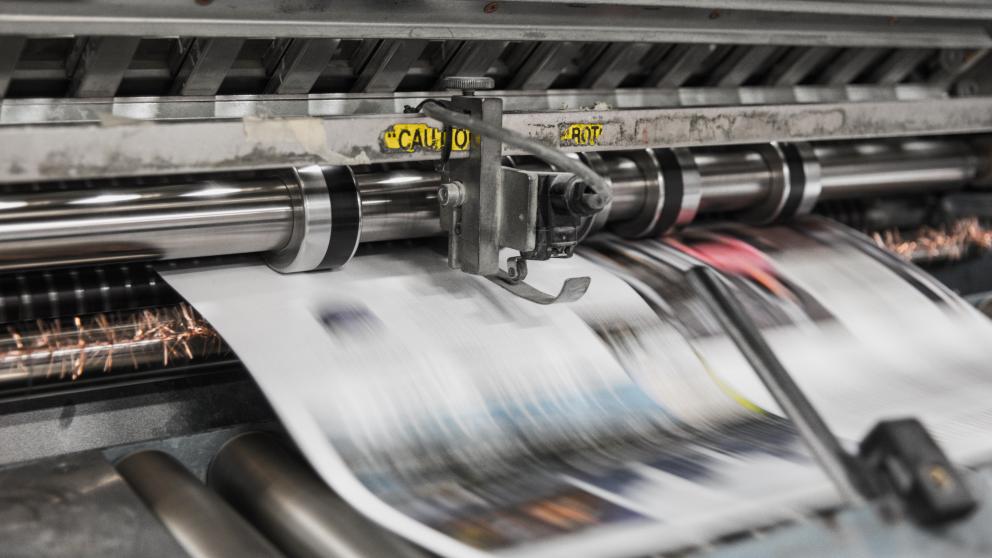Expert Opinion - How COVID19 is impacting Journalism and a profession

Journalists are feeling professional pressure from this pandemic more than most, but the industry will always crave authentic, fresh talent.
The Coronavirus pandemic has meant that industries across the world have had to dramatically adjust their operational performance and staffing bodies. Journalism is no exception.
Maintaining lucrative work as a journalist, particularly in print, is a tough challenge. Rolling short-term contracts and uncertain job security within cash-strapped organisations are two big problems which many face.
Of course a substantial drain in advertising revenue was always inevitable, no matter how comprehensive an organisation’s contingency plan may be. After all, who is going to want to advertise in a paper that nobody is allowed to go out and buy?
This has led to fears within the profession, that news conglomerates may be using the pandemic as an opportunity to tighten their belts further, to an unnecessary extent.
This universal stalling of business is hitting journalists particularly hard. Anxiety around job security is exceptional due to the cuts which have already been made in journalism. Moreover, some fear there is a window of opportunity for news organisations to slim-down their newsrooms without the uncomfortable process of redundancy or contract termination meetings.
Heavyweights in the British press are under pressure from the National Union of Journalists (NUJ) to action crisis plans to support their employees. Reach plc (formerly known as Trinity Mirror) is one of them. Yesterday, they announced plans to put a fifth of its 4,700-strong workforce on furlough and cut pay by 10 per cent for the remaining staff.
The NUJ are persistent in ensuring their members are treated in proper practice. They have said: “it is important that this is monitored closely to make sure the situation returns to normality as soon as possible."
Dr Carole O’Reilly, Senior Lecturer in Media & Cultural Studies and an expert on the history of the British press, said:
This crisis is an ideal opportunity for some news organisations to lay off more staff and stop putting money into pension schemes. Some organisations have also insisted that senior managerial and executive staff also take pay cuts. The London Evening Standard has imposed a 20% pay cut on all staff earning more than £40,000 and has furloughed some staff due to a slump in advertising.
This is ironic as during a crisis such as this, ordinary citizens need access to the kind of good quality information produced by journalists more than ever. We know people turn to the media and trusted brands such as the BBC when they want to know what’s going on. This is also important at local level – they need local information from local journalism outlets to tell them about initiatives in their area, supermarket opening times, where to turn to if they become ill and can’t go out. This is therefore a bad time for local journalism in particular to be cutting staff.
However, one person’s crisis is another’s opportunity – it may be that smaller, independent hyperlocal news websites will benefit from this situation as people may turn to them in the absence of anything else. Our own Salford Now website has been getting increased amounts of traffic as people search for local information. This demonstrates that the profession always needs a ready supply of well-trained and flexible people coming from journalism courses like ours to adapt to the current situation and provide what everyone needs – good quality, authoritative and accurate information which can advise and reassure.

Dr Carole O’Reilly, Senior Lecturer.
For all press office enquiries please email communications@salford.ac.uk or phone 0161 295 2238.
Share:
